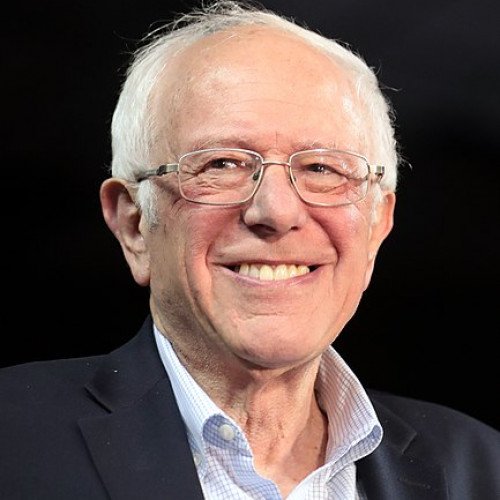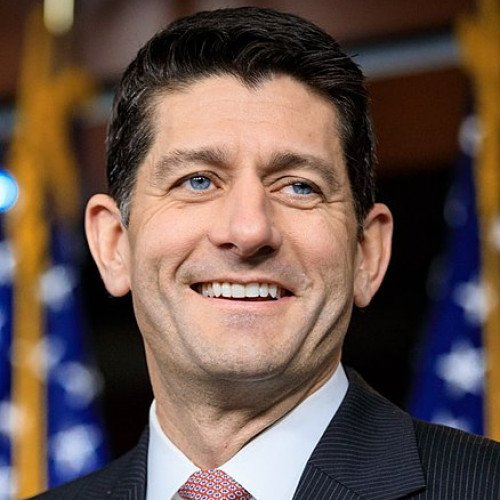Bernie Sanders VS Paul Ryan

Bernie Sanders
Bernard Sanders (born September 8, 1941) is an American politician who has been the junior United States senator from Vermont since 2007 and as U.S. Representative for the state's at-large congressional district from 1991 to 2007. He is the longest-serving independent in U.S. congressional history, although he has a close relationship with the Democratic Party, having caucused with House and Senate Democrats for most of his congressional career. Sanders unsuccessfully sought the Democratic Party nomination for president of the United States in 2016 and 2020, finishing in second place in both campaigns. Before his election to Congress, he was mayor of Burlington, Vermont. An advocate of social democratic and progressive policies, Sanders is known for his opposition to economic inequality and neoliberalism. On domestic policy, he supports labor rights, universal and single-payer healthcare, paid parental leave, tuition-free tertiary education, and an ambitious Green New Deal to create jobs addressing climate change. On foreign policy, he supports reducing military spending, pursuing more diplomacy and international cooperation, and putting greater emphasis on labor rights and environmental concerns when negotiating international trade agreements. Sanders describes himself as a democratic socialist, supports workplace democracy, and has praised elements of the Nordic model. Some commentators have described his politics as aligned with the New Deal policies of President Franklin D. Roosevelt and left-wing populism. Sanders has been credited with influencing a leftward shift in the Democratic Party since his 2016 presidential campaign. Sanders was born into a working-class Jewish family and raised in the Brooklyn borough of New York City. He attended Brooklyn College before graduating from the University of Chicago in 1964. While a student, he was an active protest organizer for the Congress of Racial Equality as well as for the Student Nonviolent Coordinating Committee during the civil rights movement. After settling in Vermont in 1968, he ran unsuccessful third-party political campaigns in the early to mid-1970s. He was elected mayor of Burlington in 1981 as an independent and was reelected three times. He won election to the U.S. House of Representatives in 1990, representing Vermont's at-large congressional district, later co-founding the Congressional Progressive Caucus. He served as a U.S. Representative for 16 years before being elected to the U.S. Senate in 2006. Sanders was reelected to the Senate in 2012 and 2018. Sanders was a major candidate for the Democratic presidential nomination in 2016 and 2020. Despite initially low expectations, his 2016 campaign generated significant grassroots enthusiasm and funding from small-dollar donors, carrying Sanders to victory against eventual nominee Hillary Clinton in 23 primaries and caucuses before he conceded in July. In 2020, Sanders's strong showing in early primaries and caucuses briefly made him the front-runner in a historically large field of Democratic candidates. In April 2020, he conceded the nomination to Joe Biden, who had won a series of decisive victories as the field narrowed. Sanders endorsed Clinton and Biden in their general election campaigns against Donald Trump while continuing his efforts to move the Democratic Party in a more progressive direction.
Statistics for this Xoptio

Paul Ryan
Paul Davis Ryan (born January 29, 1970) is a retired American politician who served as the 54th speaker of the United States House of Representatives from October 2015 to January 2019. He was also the 2012 vice presidential nominee of the Republican Party, running unsuccessfully alongside Mitt Romney. Ryan, a native of Janesville, Wisconsin, graduated from Miami University in 1992. He spent five years working for Republicans in Washington, D.C. and returned to Wisconsin in 1997 to work at his family's construction company. Ryan was elected to Congress to represent Wisconsin's 1st congressional district the following year, replacing an incumbent Republican who ran for U.S. Senate. Ryan would represent the district for 20 years. He chaired the House Budget Committee from 2011 to 2015 and briefly chaired the House Ways and Means Committee in 2015 prior to being elected Speaker of the House in October 2015 following John Boehner's retirement. A self-proclaimed deficit hawk, Ryan was a major proponent of Social Security privatization in the mid-2000s. In the 2010s, two proposals heavily influenced by Ryan—"The Path to Prosperity" and "A Better Way"—advocated for the privatization of Medicare, the conversion of Medicaid into a block grant program, the repeal of the Affordable Care Act, and significant federal tax cuts. As Speaker, he had a role in passage of the Tax Cuts and Jobs Act of 2017. His other major piece of legislation, the American Health Care Act of 2017, passed the House but failed in the Senate by one vote. Despite his past fiscal conservative rhetoric, Ryan's tenure as Speaker of the House—most of which coincided with a period of unified Republican control of the federal government—saw a significant increase in federal government spending and deficits. Ryan declined to run for re-election in the 2018 midterm elections. With the Democratic Party taking control of the House of Representatives, Nancy Pelosi succeeded Ryan as Speaker of the House.